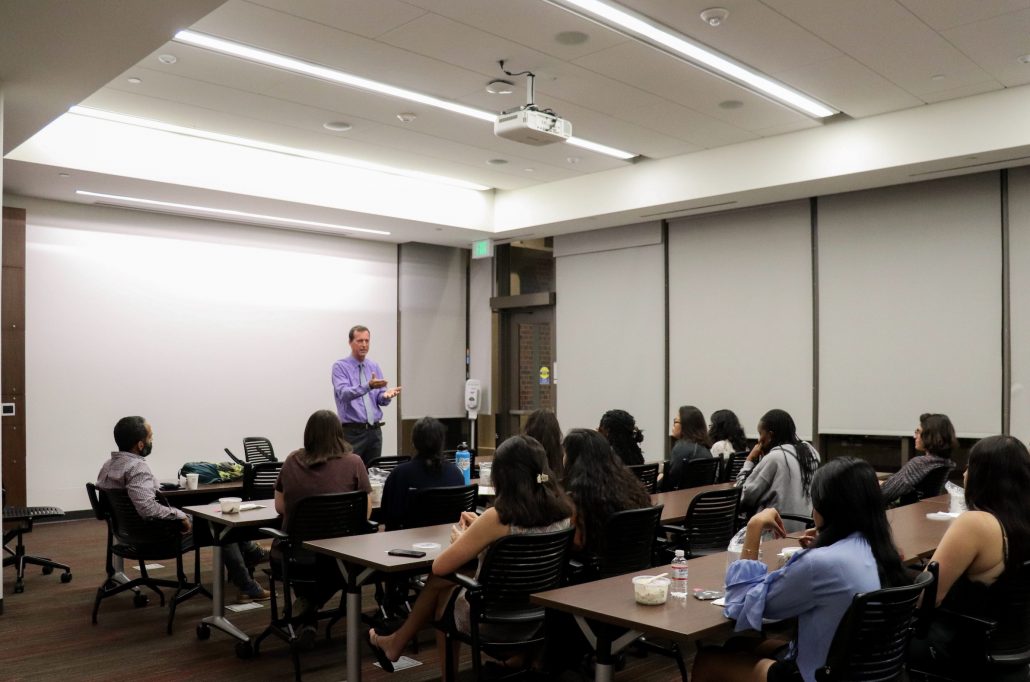Residential Education centralizes program curriculums

Residential Education has implemented extensive changes to this Fall’s residential curriculum. It will now create the programs hosted by resident assistants to offload the RAs’ stress of creating their own weekly events.
“Some of the [resident assistants] would be over-programming and running the risk of not taking time for themselves to slow down and to focus on their academics, just to breathe and be a student,” said Emily Sandoval, the senior director for Residential Education.
According to Natalia Wurst, a second-year RA at Trojan Hall, the majority of her free time during her first year as a resident assistant was used for extensive planning, coordinating and hosting events. Now, Wurst, a junior majoring in public policy and psychology, says she has a much smaller input on the programs.
“You get to pick the theme of your event — I could have done pizza instead of an ice cream social [for my event], but for the most part, the core components of the program are the same for all the RAs,” Wurst said. “I think that’s just so [Residential Education] can standardize what is being presented to residents.”
Bulletin boards are another large responsibility that was offloaded from the residential advisors. In the previous curriculum, advisors were expected to decorate bulletin boards in their residential college under certain guidelines.
“I know [the bulletin boards] were something that took a lot of time and I don’t really think [they were] that important,” said Maya Hildebrand, a past residential advisor at Cowlings and Ilium and a senior majoring in mechanical engineering. “I know, for example, RAs would put up bulletin boards and then they would get torn down by the end of the day.”
A primary goal of offloading programming and activities like bulletin boards was to encourage the resident assistants to have genuine and intentional interactions with their residents.
“RAs wanted to be involved with our program because they wanted to help their fellow Trojans, one of the number one priorities for RAs becoming RAs,” said Erin Hunter, the Residential Education Associate Director for the University Park Campus. “We were hoping that reducing the programmatic effort would allow them to have Trojan Talks with intentional interactions, relationship-building opportunities and tough conversations more frequently.”
Hunter created a committee of staff to pilot the new residential curriculum model in March 2019. Dr. Keith Edwards, a national keynote speaker on topics like sexual violence prevention, student affairs leadership and the residential experience, attended a two-day intensive training with Hunter’s staff, allowing the committee to organize its pivot to the new curriculum.
“Dr. Keith Edwards worked really closely with us … He said to launch the curriculum at 40%,” Sandoval said. “We’re not 100 percent% done planning it out … Part of the beauty of this is that we adjust and evolve to what the residents need.”
The curriculum focuses on four goals: equity and inclusion, self-awareness, well-being and community engagement. Each goal has intended outcomes that Residential Education hopes will meaningfully contribute to global communities as a result of their residence on campus at USC, the educational priority of the new programming.
Hildebrand said she hopes Residential Education continues making changes based on the well-being of the resident assistants, citing that tough conversations often magnified their levels of stress.
“The biggest stress doesn’t come from the programming itself, but it comes from feeling like you are this resource for your floor, you’re this therapist for your floor, you’re also a police for your floor and all of the above,” Hildebrand said. “Another good step would be having more resources for an RA, such as a counselor at Engemann specifically for RAs to go see.”
As for Residential Education, they will continue altering the new curriculum as they receive feedback from resident assistants, residents and residential college coordinators.
“I think that no matter what a first-year student chooses to do — what academic college they are in, what student organizations they decide to join, if they’re a student-athlete or a part of student government — where their head hits the pillow has to be home,” Sandoval said.
Residential Education encourages residents and resident assistants to submit their feedback on the residential experience in a survey that will be sent to students in October.

